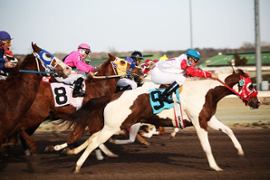Summary
- A newly released report from GambleAware highlights the crucial support provided by the National Gambling Support Network.
- Established two years ago, the Network has engaged with over 110,000 people.
- In the second year, the Network experienced a substantial rise in brief interventions, which increased by 93%.
GambleAware, a prominent independent charity, has published a new report showcasing the number of individuals who have received support through the National Gambling Support Network (NGSN). This network offers free, non-judgmental, and confidential treatment advice and assistance for various gambling-related issues. The report presents data revealing the extent of support provided by the Network since its inception in 2023, highlighting a significant rise in self-referrals.
Thousands of people benefit from vital support thanks to the National Gambling Support Network
Since its inception in April 2023, the National Gambling Support Network (NGSN) has been instrumental in assisting over 110,000 individuals. According to GambleAware, this figure reflects the number of people who have utilized services such as the National Gambling Helpline, regional providers, primary care, and residential services. Anna Hargrave, Deputy Chief Executive of GambleAware, remarked that the second year of the NGSN offered a chance to build on the lessons learned during its first year. The focus is now on optimizing support for those impacted by gambling-related issues. She also noted a rise in the number of people receiving support, with an encouraging increase in brief interventions and self-referrals. This development allows for earlier support, reducing the likelihood of further harm. Hargrave highlighted the expertise within the NGSN, which plays a vital role in assisting individuals affected by gambling harm nationwide. She expressed enthusiasm for collaborating with future commissioners and integrating the NGSN into the upcoming system to ensure that service providers can continue delivering essential assistance.
Brief interventions increase
According to new data, brief interventions—short discussions aimed at addressing potential gambling-related issues—experienced remarkable growth in the Network's second year of operation. In the first year, 11,000 people participated in brief interventions. This number almost doubled in the second year, increasing by 93% to over 21,000. The newly released report highlights the significance of person-centered support, which allows individuals to access services tailored to their specific needs and circumstances. The report also notes that the average waiting time for an initial assessment is two days. Due to increased outreach, enhanced engagement activities, and updates to tools like the GambleAware service finder, the awareness of available support has improved among frontline professionals and the public. This makes individuals more likely to directly access local support services, the report states.





























